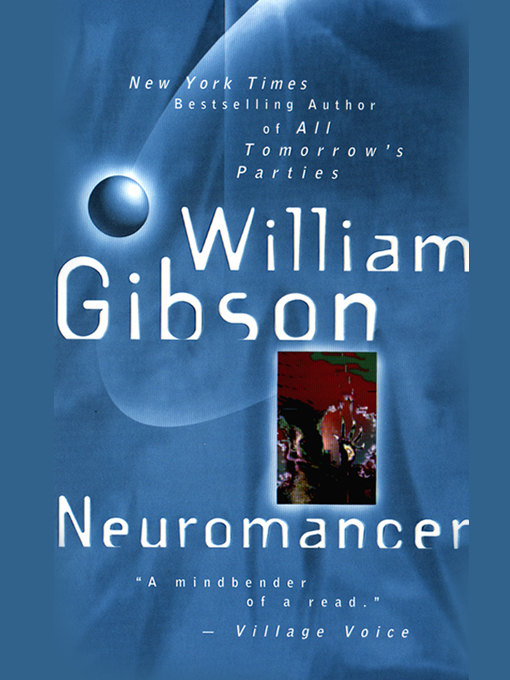5/5 Stars
Gordon’s Ratings Guide:
1/5 - Blech! Don't Bother
2/5 - Nothing Special
3/5 - Entertaining and worth a read
4/5 - Amazing! You should definitely read.
5/5 - Truly an outstanding title. MUST read!
Case is a has-been cyber-thief and our protagonist. Once one of the best cowboys running the matrix (think immersive 3d representation of the internet), he lived in the world of data and shunned the meat-world of the real. But he ripped off the wrong people and ended up with the part of his cortex that interfaces with the matrix fried beyond working order. Unable to jack-in, Case lets himself begin a slow and erratic decent into oblivion filled with drugs and borderline deals with dangerous people in a piece of Chiba called Nightcity. It is in this state that Case is picked out of the nose dive into death by a mysterious man named Armitage. Armitage arranges to have Case's cortex repaired in exchange for a completing a job, with the caveat that if he isn't quick enough, the repair job will revert to his previous burnt-out state. Unable to know who to trust, just what is going on, and who is actually running the show Case struggles to keep his head on his shoulders. With alluring and sometimes frightening razorgirl Molly, a cybernetically enhanced whirling dervish dealing out death in a graceful dance, as his companion Case rushes to complete a task that will result in profound changes for the matrix and the world.
Neuromancer, from its first year of publication, has been a must-read book for anyone with even a passing interest in science fiction as well as for those who question the world around them. The ideas and settings portrayed in its pages helped birth a subgenre of science fiction called cyberpunk (an association that rankles Gibson and many fans of the book) and even inspired some of the most influential technologies we use today. But more than all that, it is simply a damn good read! Action, dark humor, and absolutely astounding world building create a book that is impressively re-readable. The pace of the book is sometimes breathtaking in its speed, but the reader will often stop to reread sublime lines of beauty. In fact, the first line of the book is often considered one of the best in modern literature: "The sky above the port was the color of television, tuned to a dead channel." Time magazine even recognized the book as one of the top 100 novels written since 1923 in 2005.
The book resonates with me a great deal and for some of the same reasons every time I pick it up as well as inspiring in new ways. It speaks to the part of all of us that feels we don't belong, that we're outsiders striving against a system of conformity. The rotted from the inside and out world in which Case and Molly live their lives can be seen growing all around us. The near instinctive push-back against a society ruled ever more by corporations while at the same time dependent on and addicted to the technology we happily buy from them. Speaking of technology, it is portrayed in the novel as at once intoxicating and alienating, mirroring how many people feel chasing that ever-accelerating horizon of state-of-the-art. It is also astounding how accurate Gibson's picture in 1984 of future tech is. There are really only a few missteps: a powerful and important scene hinges on the presence of a bank of payphones and the size of memory being the only glaring miscalculations I routinely find. From the emotions the book provokes to the intense world building and intricate lyricism, this book is still astounding 30 years after its release. At the end of the experience, when I turn the last page, I can't wait till I pick it up again to discover what revelations will result from the reading I have in a year or so.






No comments:
Post a Comment